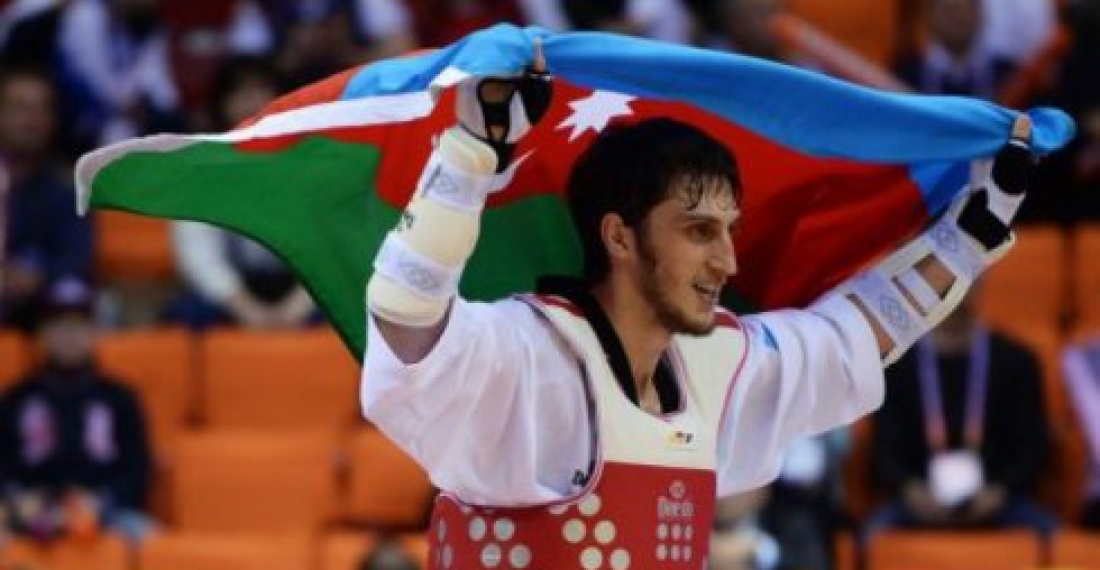Azerbaijan has finally won its first gold medal at the Rio Summer Olympics Games.
Azerbaijani taekwondo fighter Radik Isaev defeated Abdoulrazak Issoufou Alfaga of Niger 6-2, and won the men's over 80kg taekwondo gold medal.
Radik Isaev also became the first Azerbaijani to win an Olympic taekwondo gold.
The bronze medals went to South Korea's Cho Dong-Min and Mahama Cho of Britain.
Azerbaijan has in the past performed well at Olympic competitions and Isaev's gold brings to 15 the number of gold medals won by the country since it started participating as an independent state following the dissolution of the USSR in 1991. There had been some disapointment among the sport loving public in Azerbaijan at the failure to secure a gold medal in Rio, so Isaev's win was very warmly greeted.
Azerbaijan has also won four silver and ten bronze medals so far in Rio.
source: commonspace.eu
photo: Radik Isaev won gold for Azerbaijan in the Rio Olympics.







